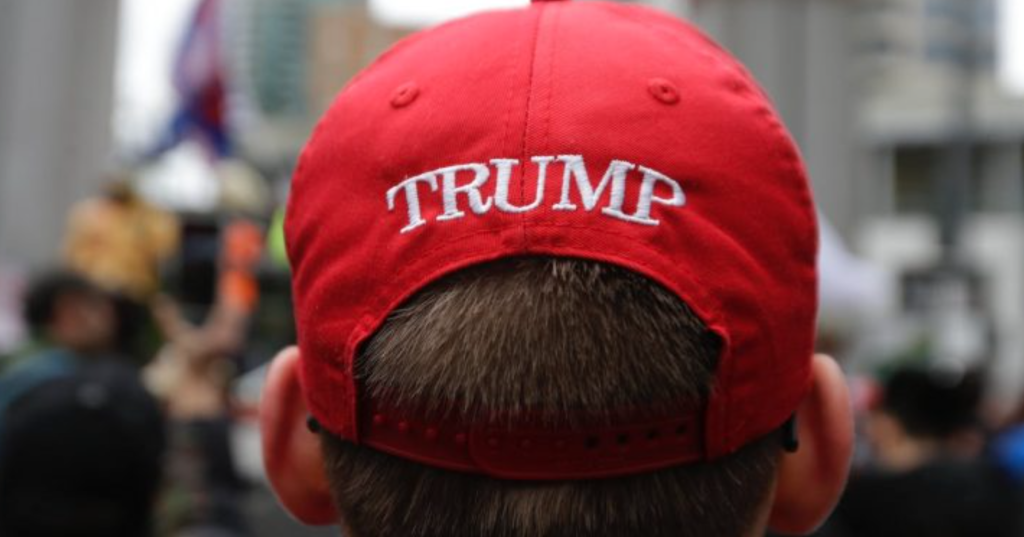

Perhaps the former president really is a unifier
In the first chapter of St. Paul’s first letter to the Corinthians, the apostle addresses division in the ancient city’s Christian community. Here is the King James version:
For it hath been declared unto me of you, my brethren, by them which are of the house of Chloe, that there are contentions among you. Now this I say, that every one of you saith, I am of Paul; and I of Apollos; and I of Cephas; and I of Christ. Is Christ divided? Was Paul crucified for you? Or were ye baptized in the name of Paul?
I thought a lot about Paul’s framing of this exhortation to the Corinthians during the 2016 presidential primary season as I watched American evangelicals line up behind different GOP candidates.
Remember the “I am of Marco Rubio” faction? The Florida Senator assembled a “religious liberty advisory board” that included California megachurch pastor Rick Warren and evangelical academics Vince Bacote, Wayne Grudem, and Thomas Kidd. The advisory board was the brainchild of a young Wheaton College graduate named Eric Teetsel, the Rubio campaign’s Director of faith outreach.
Teetsel’s choices spoke volumes about the kind of evangelicals Rubio wanted to reach. Bacote, a Wheaton College theology professor, had just written a book on evangelical political engagement and was a strong advocate for the role of Christianity in cultural renewal. Baylor University historian Thomas Kidd (who now teaches at Midwestern Baptist Theological Seminary, a Southern Baptist school in Kansas City, Missouri), was (and continues to be) a prolific writer on matters related to religious freedom and the American founding. Grudem was very popular among young Calvinists for his primer on evangelical theology and his complementarian view of marriage. Such a lineup suggests that Rubio and Teetsel wanted to appeal to college-educated evangelicals, the kind of folks who might send their kids to Wheaton or study for the ministry at Trinity Evangelical Divinity School or The Southern Baptist Theological Seminary.
There was also the “I am of Ted Cruz” faction. The Texas senator secured endorsements from James Dobson, the founder of Focus on the Family ministries and one of the architects of the Christian Right’s “family values” campaign, and Tony Perkins, the president of the conservative Family Research Council. Cruz also got support from Ben Sasse, the popular evangelical senator from Nebraska; Michael Tait, the lead singer of the popular Christian contemporary music band Newsboys; and Christian Right activist and former GOP presidential candidate Gary Bauer. Perkins chaired Cruz’s evangelical advisory council, which included megachurch pastors Jim Garlow and Jack Hibbs, Hispanic evangelical leader Samuel Rodriguez, and First Liberty Institute’s Kelly Shackleford. Cruz’s group represented much of the traditional Christian Right, the conservative evangelical political movement that came of age during the Reagan era.
And then there was the “I am of Donald Trump” crew. Trump’s business success and wealth made him attractive to those Christians sympathetic to the gospel of prosperity, or the “health and wealth gospel” movement. Some of the powerful leaders of the New Apostolic Reformation movement prophesied a Trump victory. In September 2015, when Trump met with nearly three dozen evangelical leaders at Trump Tower in New York, the room was filled with Pentecostal, prosperity gospel, and New Apostolic Reformation leaders such as Gloria and Kenneth Copeland, Jan Crouch, Paula White, and Mark Burns. By January 2016 Trump had also secured endorsements from Robert Jeffress, the pastor of the First Baptist Church of Dallas, Texas, and Jerry Falwell Jr., the president of Liberty University.
Today Trump holds a commanding lead over the rest of the GOP primary field and, unlike 2016, conservative evangelicals are much more unified. Most of them are now firmly in the “I am of Trump” camp. It seems like they have overcome their differences and found a political savior they can all feel good about. It’s really amazing to see what a few Supreme Court justices can do.
Granted, some of the old “I am of Rubio” and “I am of Cruz” factions have refused to get behind the former president’s 2024 campaign. Kidd, Bacote, Sasse, and Warren come immediately to mind. The educated evangelicals they represent still might vote for Trump in 2024, but they will hold their noses as they do it. For most conservative evangelicals, though, there is no question about who they are supporting in the 2024 primaries.
Take, for example, Teetsel. In 2016 he protested at a Trump meeting with conservative evangelicals at the Marriott Marquis in Times Square by carrying a hand-written sign that said, “Torture is not pro-life / Racism is not pro-life / Murdering of the children of terrorists is not pro-life.” The sign included a reference to Proverbs 29:2: “When the righteous are in authority, the people rejoice: but when the wicked beareth rule, the people mourn.” Teetsel is now a vice-president at the pro-Trump Heritage Foundation.
Wayne Grudem has carried a lot of water for Trump over the last seven years. In 2020 he told World magazine that anyone who believes that Trump is a divider is “bearing false witness.” He has recently had some doubts about supporting Trump in 2024, but I fully expect him to pull a lever for the former president if he runs against Joe Biden in the general election.
The 2016 “I am of Cruz” group (with a few exceptions, most notably Sasse) made a seamless transition to Trumpland in the same way Cruz himself did in the weeks following the 2016 Republican national convention. (Future historians will marvel at how quickly Cruz started defending Trump after the candidate made disparaging remarks about Cruz’s wife’s appearance and suggested that Cruz’s father was somehow behind the JFK assassination.) Today, Dobson, Bauer, Garlow, Hibbs, and Rodriguez either back the king of Mar-a-Lago or else have remained silent on who they prefer for the GOP nomination. Perkins has not endorsed anyone yet, but don’t expect him to join the “I am of Nikki Haley” (too moderate on abortion) or “I am of Ron DeSantis” (no chance of winning) wing of GOP endorsers any time soon.
Trump has said on numerous occasions that he is a “great unifier.” Perhaps he is right. I am left wondering what St. Paul would think.
John Fea is Executive Editor of Current
Photo credit: Ted S. Warren/AP